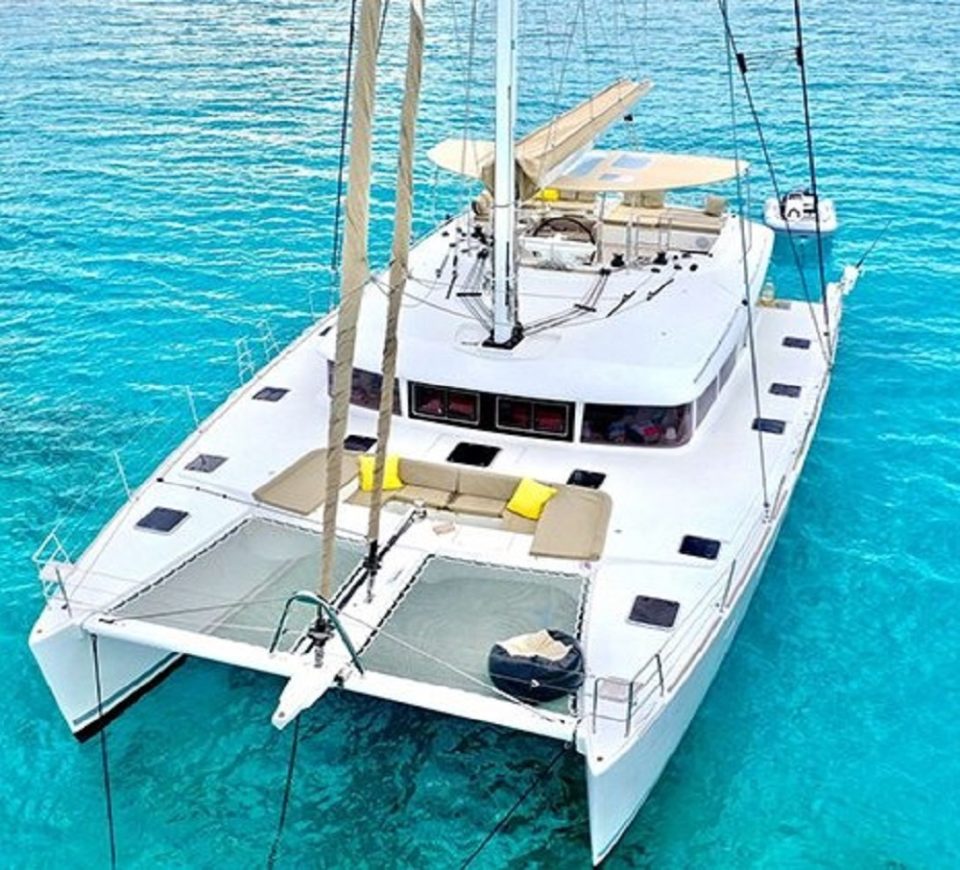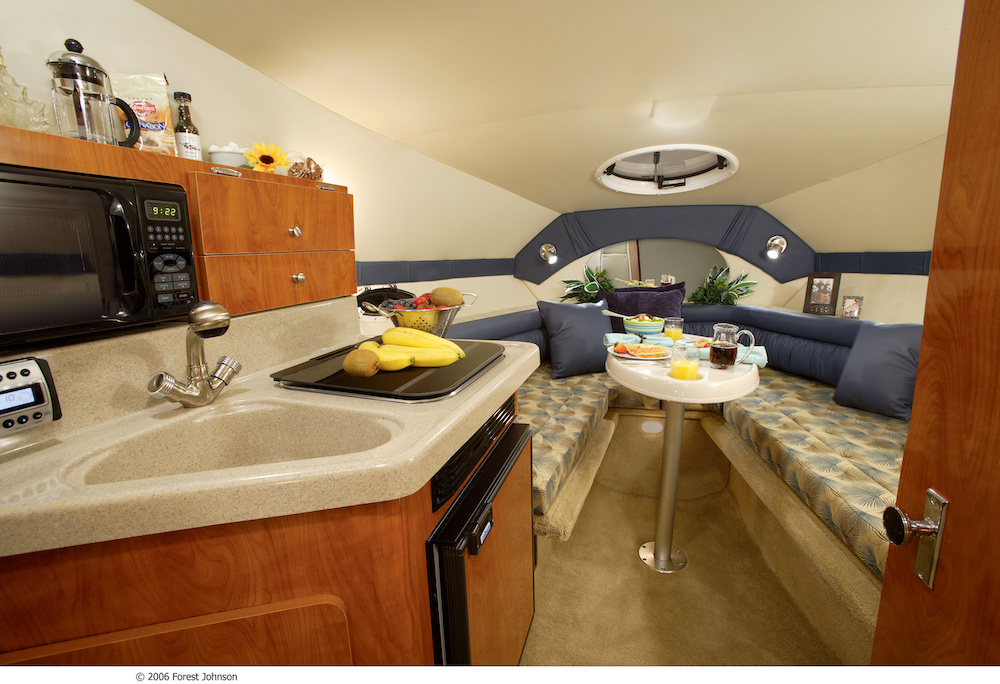- Yachts for Sale
- Sales Report 2024
- FAQ – Luxury Crewed Yacht Charters
- FAQ – Bareboat charters
- FAQ – Sell your Boat
- FAQ – Buying a Yacht
- How Much does it Cost to Charter a Luxury Yacht?
- All Blog Posts and News
- Yachting for beginners
- Indian Ocean
- Mediterranean
- Sales & New build
- Motor Yacht
- Event & News


Can you live on a yacht full time? Our advice

Choosing to live on a yacht full-time is not everyone’s cup of tea. However, the fact that you’re thinking about it suggests that you’re one of those people who finds the curiosities of a life spent bouncing on the sea, river, or lake appealing. It’s easy to romanticize the concept of living aboard a yacht full-time. However, such an unconventional lifestyle necessitates planning, organization, and the capacity to adapt to change. “”
There’s a lot to think about, from the type of boat you buy to where you’ll moor it, as well as various lifestyle aspects. Make checklists of essentials and discuss deal-breakers with your companion once you’ve decided to move aboard. Certainly, ensure that you are well-aware of the pluses and minuses of living on a yacht full-time. This will help you to better plan your budget and all the resources. So, before making the final move, brace yourself and your boat to enjoy the adventure. But at the same time, be prepared to face any uncertainties that can come along the way.
Living on a yacht : pros and cons
For most folks, living on a yacht full-time is an adventure. There are both upsides and downsides to living on a yacht.
Main advantages about living on a yacht
Relaxed way of living.
Slowing down and relishing life in an age where life today is becoming faster-paced, more demanding and hectic can be difficult. Unless you’re on a yacht, of course. The feeling of liberation amidst nature is only the onset. Everything becomes much simpler and minimalistic. You only have those things with you on a yacht which are essential.
Low Cost of Living
Living on a boat is frequently associated with luxury and affluence. However, this life is frequently less expensive than other lodgings. You’ll save money on utilities, water, plus the mortgage or rent.
Endless Adventure and Getting Closer to the Nature
The symphony of birds, the swaying of the yacht, and the splatter of waves, all bring you closer to nature when you live on the water. Raucous seals, dolphins, and seabirds will be your neighbors. Indeed, you will have fresh fish for dinner, and watch the seasons change minute by minute.
Main drawbacks about living on a yacht
Small confined spaces.
It takes some time to get used to the cramped living areas on a yacht. Plus, there are no personal spaces for individuals. Sometimes, living in such small spaces can be problematic, although it may not look like during the initial days of living aboard.
Costly Yacht Maintenance
Maintenance and repair work of a yacht is generally more expensive than one may imagine. Mechanical components are costly, and mechanics are even more so.
Unseen Weather Conditions
It is vital to be aware of the weather on a daily basis when living on a yacht. You’ll also know when the water is disturbed, and you won’t get much sleep as a result. Large yachts are less likely to rock. Furthermore, the correct type of anchorage can help you prevent some sleepless nights, but if it’s storming outside, be prepared to have a hard time sleeping.
Read also : The 5 best sailing boats under 60 feet
What do you legally need to do to live on a boat full-time?

Find a good boat insurance
Choosing the best boat insurance as per your needs is very essential before moving onto a yacht for full-time living. Certainly, this will cover the repairs due to storms, accidents that may occur on the waters. It also protects you from liability if your boat injures somebody or damages someone else’s property. Importantly, be aware that the cost of yacht insurance is higher than the cost of recreational boat insurance. Nevertheless, having a proper boat insurance provides peace of mind in the event of unforeseen circumstances. Examine various boat insurance choices based on your requirements, destination, budget, and way of life.
Register your yacht in an appropriate location
It’s also critical to conduct your homework while choosing a yacht registration place. All local laws will apply to your yacht once it is registered in a particular region. Many countries with appealing tax arrangements have other drawbacks that you should avoid. You’ll also want to register your yacht in a well-known location or country around the world. If you choose a bad-reputed place, you may be limited in your travel options or, at the very least, exposed to extra detainment and checks.
Keeping ties with administration
While living on a yacht full-time, make sure to have cordial relationships with the local authorities and administration related to boats and yachts. Consequently, this will prove beneficial in the long-term while dealing with any legal complications.
The intricacies of living in international waters
The most important thing to keep in mind while planning to live full-time on a boat is to understand the laws related to living on waters of other countries. Additionally, be mindful of the security and safety while living on international waters.
What is the minimum boat size to live on it full time?
A single individual might be able to get by with a 30 feet one, but a family of six would require something closer to 50 feet. It’s also important to consider how much gear you’ll be bringing onboard. If you want to get a fridge, or a washing machine, you will surely need a larger one.
How much does it cost to live on a yacht full time?

Typical costs you can’t avoid while living on a yacht
- Boat/yacht charges
- Maintenance
- Marina slips
- Property tax
- Waste management
Non-mandatory costs
- Frequent dining outs
- Entertainment expenses like internet or TV

Minimum budgets to live on a yacht
The minimum budget required to live full-time on a yacht depends entirely on one’s lifestyle and needs. Living on the yacht costs between $3,000 and $12,000 per month on average. This, certainly, depends on the number of people who will be living aboard and the place you will be traveling around.
Minimum budget to live full time on a yacht alone
This can lie in the range of $1,500 to $3,000 a month.
Minimum budget to live full time on a yacht as a couple
Somewhere between $3,000 to $5,000 a month.
Minimum budget to live on a yacht as a family
The minimum budget required to live full-time on a yacht with family may start from $5,000. Certainly, there is no upper limit as it may go up as per the family size, location, and needs.
The best affordable yachts for full-time living

The options for best reasonably priced yachts for living depends on your needs and budgets. On a general level, following are some affordable boat alternatives for full-time living:
- Beneteau Swift Trawler
- Alliaura Privilège catamaran ( view our Privilege 745 for sale )
- Swan Yachts
- Albin North Sea Cutter
- Lagoon 52 catamaran ( our Lagoon 52 for sale here )
- Sunreef Power 68 Catamarans
Read also : 10 Yachts for Sale Under a Million
The best places to live on a yacht

A multitude of quiet beaches, breathtaking sunsets, and blustering winds are all important factors to consider while looking for the dream destination to live on a yacht. Here is a list of some of the best places around the world to live aboard a yacht.
- Australia and New Zealand
- The Caribbean
- The South Pacific
- Greek Islands
- Costa Smeralda, Italy
- The French Riviera
Readl also : Top 10 of destinations for Luxury yacht vacations
I want to live on a yacht, where should I start?

Step 1: Pick the Right Kind of Yacht and Documentation
The first stage in the process is to choose a yacht to live on. Consider the type of yacht you want, your budget, and the extent of space and comfort you require. Check all the utilities available on the yacht. Make sure you know everything about the fuel capacity, type and refuel ways to stay prepared.
Once you have decided on the yacht, compile all the necessary documentation related to it. This includes the tax and insurance documents. Also, have in place your passports and relevant sailing or boating licenses and certifications.
Step 2: Acquire the Beneficial Skills and Understand the Pertaining Laws
In terms of regularity and precision, boat maintenance may be worse than residential maintenance. Because boat systems are often less reliable than their domestic counterparts, basic plumbing, electrical, and mechanical skills will be required. Also, practice anchoring and sailing.
Next, keep yourself updated with all the related laws in the area where you are planning to live on a yacht.
Step 3: Downsize Before the Final Move
You won’t be able to bring all of your belongings onto the boat. It’s up to you how far you go with your downsizing. However, having a backup plan is always a smart idea. People’s opinions alter as a result of unforeseen events.
When relocating to a yacht to live on it full-time, there are numerous things to consider. It’s excellent to have a decent beginning point for things to put on the to-do list. Use this guidebook as a reference point for planning a full-time life on a yacht. Set deadlines and cross items off your to-do list one at a time. Maintain your focus on the end result.
You may want to select the right boat to live in depending on your project. Contact us to discuss your option and we’ll help finding you the right one!

RELATED ARTICLES MORE FROM AUTHOR
Does starlink work at sea on a yacht a complete guide to starlink internet for boating, luxury yachts for charter perfectly suited for 10 guests, yacht buyer’s guide: top 10 mistakes to avoid for first-time buyers.
- Testimonials
- Privacy Policy
Living on a Boat: Beginner's Guide for Liveaboards

It’s easy to romanticize the idea of living on a boat full-time; however, it's an alternative lifestyle like that takes preparation, organization and an ability to roll with changes. When you commit to moving aboard, make checklists of necessities and talk to your partner about deal-breakers. Prepare the boat for life aboard well before you make the move.
Factors to Consider Before Living Aboard
Before moving onboard your boat, you should ask yourself some questions:
- Is this just for a period of time before you go cruising or is this a lifestyle choice?
- Are you comfortable with repeatedly defending your choice to your friends and family?
- Are you living in a climate that is boat-friendly year-round?
- Are you handy and a good problem solver?
- Who will accept your Amazon deliveries and are you ready to grocery shop frequently since there won’t be room to stow much?
- Are you ready to become your own maid?
- Will you feel comfortable with your kids being in this new environment?
- What’s Plan B if it doesn’t work?
After moving aboard, you may be hauling the laundry to the laundromat or groceries from the parking lot with no dock cart nearby. You’ll need to go to the pump-out station regularly as well as to the post office for your mail. Small doesn’t translate to easy so mentally run through a typical week and write down solutions to the issues.
Essentials: Stowage, Comfort & Connectivity
When you move from a 2,000-square foot house to a 40-foot boat, all the closets are smaller, the cupboards are fewer and there’s no two-car garage. In preparation, you’ll need to de-clutter kitchen gadgets, tools, mementos and clothing. Keep winter clothes in off-boat storage and your business attire at the office if possible.
Make sure the boat is warm and dry with plenty of ventilation. Mildew and condensation will become a part of life and you’ll need a whole new set of cleaners and tools.
Plan your connectivity needs. Whether a dish for TV or high-speed internet access via the marina WiFi, you’ll need a connectivity solution so you’re not cut off from work, friends, family and entertainment.
Beneficial Skills to Have for Living Onboard
Maintenance on a boat may be worse than in a house in terms of frequency and specificity. Basic plumbing, electrical and mechanical skills will be needed because boat systems are generally less reliable than their household counterparts. The alternative is calling a contractor for every issue.

Cost of Living on a Boat
Don’t assume that you’ll save money by moving aboard. Here's some expenses you may incur by living on your boat:
- Boat mortgage payment
- Boat insurance
- Waste management
- Food and water
The best way to manage expenses is by making a budget and sticking to it. Depending on the size and value of the vessel, boat insurance may be just as expensive as house insurance. Property taxes will usually be less as will electricity since you’ll not be heating/cooling/lighting as big a space. You’ll probably save money on waste management, gas and water as well.
Where costs rise dramatically is maintenance . Marine parts and labor are usually more expensive—sometimes 20% more, than typical household counterparts. If you take on the tasks yourself and you’re self-employed, every hour you spend working on your boat is an hour you don’t make money.
Learn More in our Boat Insurance Guide
Safety & Security
You’ll need to decide whether to invite strangers inside, and if kids and pets will be safe around the docks. Install CO2 and smoke alarms and a propane sniffer, check the fire extinguishers periodically, and keep an eye on the basics like bilge and battery levels. You may also want to consider the following:
- Will you be safe walking from the parking lot to the slip at night?
- Will your nice car be okay outside the garage 24/7?
- Who will call you if your boat starts to list when you’re on vacation?
There aren’t really more or fewer safety issues, just different kinds.
Daily Life & Socialization
Socializing is easier in a marina than in a neighborhood. Neighbors help neighbors in marinas but it’s a two-way street so be ready to lend a hand when needed. If you’d rather live anonymously, consider an end tie in the forgotten corner of the marina. Although there are challenges to living on a boat, if you’re prepared, you may find it a perfect fit.
I already have a boat in a slip in a marina, so can I just move aboard?
Most marinas require an application for you to move aboard permanently. In some areas, liveaboards aren’t permitted or there are long waiting lists. Liveaboard slip fees are usually higher and your insurance rates may increase if your boat becomes your primary residence.
How do I live aboard a boat with a pet?
Dogs, cats and other pets need to acclimate to their new environments. They need exercise, private space and easy access to food and a potty. Make sure stairs and docks are safe for them and that they know how to get on the boat or dock if they fall in the water. Be careful of small spaces where they can get trapped and wires they can chew. Teach them about their new environment and be patient.
Learn more in Boating with Pets and Tips for Taking Your Dog Boating .
Read Next: Boat Owner's Guide
Looking for more information on boat ownership? Read...
- Boat Owner's Guide
- Costs of Boat Ownership
- Boat Maintenance Guide
- Insuring Your Boat
- Boat Safety Guide

Join Our Newsletter!
Get community news, buying bargains, and how-to guides at your fingertips.

IMAGES
VIDEO